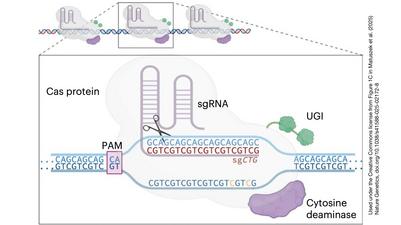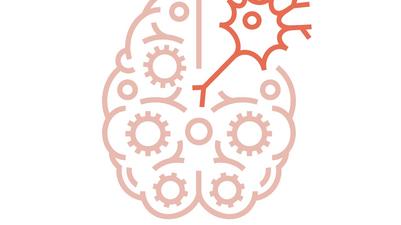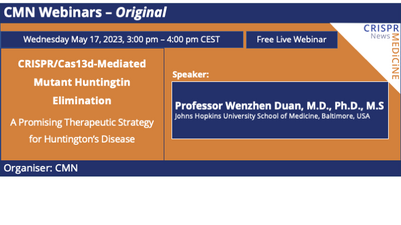Disease name: Huntington's disease
ICD-10 Disease Code: G10 - Huntington's disease
ICD-10 Disease Group: G10-G14 Systemic atrophies primarily affecting the central nervous system
General description:Huntington’s disease (HD) is a rare, neurodegenerative genetic disease that is characterised by progressive choreatic movements (involuntary, irregular, unpredictable muscle movements), behavioural and psychiatric disturbances and cognitive decline.
Although the disease is inherited at birth, symptoms usually don’t manifest until middle age, with the average age at onset being 30-50 years. HD progresses rapidly and is fatal.
There is currently no cure for HD and treatments are largely symptomatic and preventative, aiming to improve the quality of life by treating symptoms of chorea and psychiatric decline, and by preventing weight loss, choking and other painful or dangerous symptoms.
Mutations:HD is caused by a mutation in a CAG trinucleotide repeat in the Huntington gene, located on chromosome 4. Under normal circumstances the CAG repeat contains fewer than 35 repeats and encodes a protein that interacts with neurons in specific brain regions. However, in HD the mutated repeat is expanded, exhibiting substantially longer repeat length and leading to expression of a mutant protein. The longer the repeat expansion, the earlier disease symptoms occur. Degenerative changes to neurons occur through age-dependent exposure to the mutant protein.
HD is inherited in an autosomal-dominant manner, meaning that inheriting only one mutated copy of the Huntington gene will result in disease development. This means that people with Huntington’s disease have a 50% chance of passing it onto their children.
Disease frequency:HD is estimated to affect approximately 3-7 per 100,000 individuals of Caucasian ancestry.
Symptoms:The primary symptoms are cognitive, motor and psychiatric decline due to the death of neurons. Although the precise function of the wild-type huntingtin protein is still poorly defined, it is known to interact with neurons throughout the brain. The mutant huntingtin interacts with these nerve cells and eventually leads to neuronal death. The changes to neurons in brain regions give way to the multiple, complex disease symptoms.
The most common symptom is chorea that progresses rapidly, eventually spreading to all muscles. Dystonia can often be the first sign of motor decline in individuals with HD. This is characterised as uncontrollable muscle movements such as tics and muscle jerks. Cerebellar-related motor decline can occur sporadically. As the disease progresses, dysarthria and dysphagia become serious symptoms, making tasks such as talking and swallowing difficult. Motor ability declines rapidly and patients develop bradykinesia, a rigidity and slowness of movements. All psychomotor processes become extremely difficult for HD patients. Individuals with HD often exhibit cognitive decline such as an inability to retain long-term memory. Psychiatric symptoms such as depression and anxiety are common, especially in the early stages of the disease. Other symptoms include involuntary weight loss and choking.
Treatment:There is currently no cure for HD. Treatments aim at alleviating disease symptoms such as aberrant muscle movements and psychiatric dysfunction. Symptoms of chorea associated with HD can be treated using neuroleptic medication to block dopamine receptors or depleting agents. In addition to this, as of 2008 the Food and Drug Administration (FDA) has approved tetrabenazine (Xenazine) to treat symptoms of chorea. Psychiatric symptoms can be treated with medication or non-medical care such as psychotherapy, or a combination of the two. A specialised diet can help prevent symptoms of weight loss and choking.
There are several investigational therapies currently underway that aim to analyse new therapies and treatments to target HD. Information about current clinical trials is found through Huntington Study Group (HSG), a collaboration of over 250 clinicians, coordinators and consultants throughout the United States, Canada, Europe and Australia.
Sources:- https://www.icd10data.com/
- https://www.orpha.net/consor/cgi-bin/index.php
- https://rarediseases.org/
- https://medlineplus.gov/genetics/
- https://www.cdc.gov/




